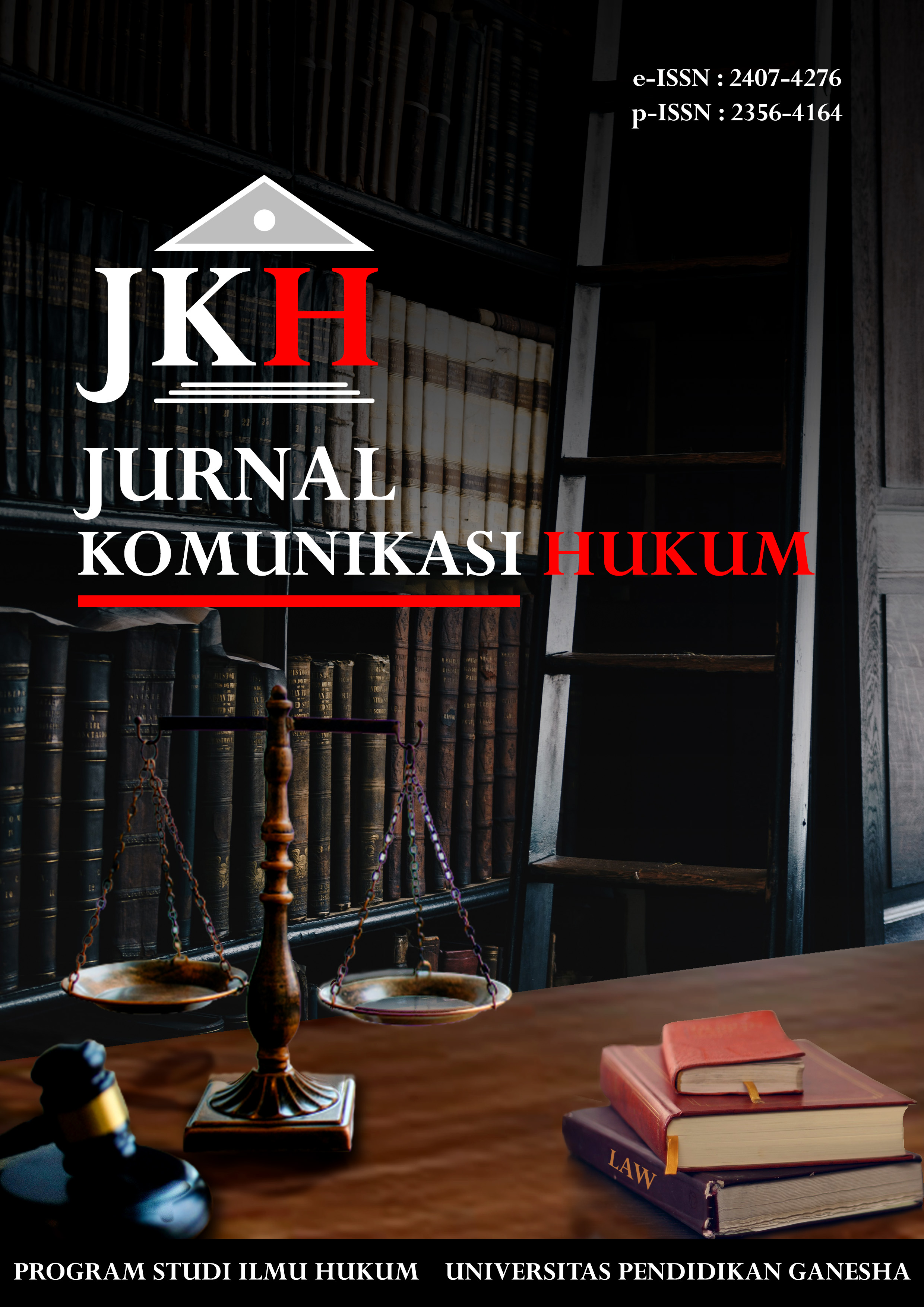Polemik Desakan Pengesahan RUU PKS: Suatu Tinjauan Sistem Hukum Nasional dan Perspektif Hak Asasi Manusia
DOI:
https://doi.org/10.23887/jkh.v7i2.37993Abstract
One of the national problems that are often ignored by the government. Yet to this day, there are still many women who are the object of sexual violence. However, there are very few legal instruments that can protect their rights. Most victims who try to fight sexual violence are discriminated against and intimidated. What is even more surprising is that the intimidation does not only come from perpetrators of sexual violence, but also from law enforcement. Therefore, it is necessary to revamp the legal instruments that regulate sexual violence. The urge to immediately ratify the draft law on the elimination of sexual violence (RUU PKS) is even more massive. This paper uses a normative juridical research method that examines various laws and regulations related to sexual violence. If it is based on the results of the research, it can be concluded that the instruments in the national legal system have not been able to answer this problem. The Criminal Code (KUHP) has not been able to provide maximum protection and recovery for victims of sexual violence. Considering that the current Criminal Code does not provide a clear definition of the term sexual violence. The Criminal Code only focuses on punishing perpetrators, but does not focus on restoring the rights of victims. Likewise with the Law on the Elimination of Sexual Violence in the Household. The law also does not mention the elements of sexual violence committed against people in the household. Then, sexual violence is also an act that violates human rights because there is unfair treatment for the victim.
Downloads
Published
How to Cite
Issue
Section
License
Authors who publish with this journal agree to the following terms:- Authors retain copyright and grant the journal right of first publication with the work simultaneously licensed under a Creative Commons Attribution License that allows others to share the work with an acknowledgement of the work's authorship and initial publication in this journal.
- Authors are able to enter into separate, additional contractual arrangements for the non-exclusive distribution of the journal's published version of the work (e.g., post it to an institutional repository or publish it in a book), with an acknowledgement of its initial publication in this journal.
- Authors are permitted and encouraged to post their work online (e.g., in institutional repositories or on their website) prior to and during the submission process, as it can lead to productive exchanges, as well as earlier and greater citation of published work (See The Effect of Open Access).
Authors who publish with this journal agree to the following terms:
- Authors retain copyright and grant the journal right of first publication, with the work [SPECIFY PERIOD OF TIME] after publication simultaneously licensed under aCreative Commons Attribution License that allows others to share the work with an acknowledgement of the work's authorship and initial publication in this journal.
- Authors are able to enter into separate, additional contractual arrangements for the non-exclusive distribution of the journal's published version of the work (e.g., post it to an institutional repository or publish it in a book), with an acknowledgement of its initial publication in this journal.
- Authors are permitted and encouraged to post their work online (e.g., in institutional repositories or on their website) prior to and during the submission process, as it can lead to productive exchanges, as well as earlier and greater citation of published work (See The Effect of Open Access).












